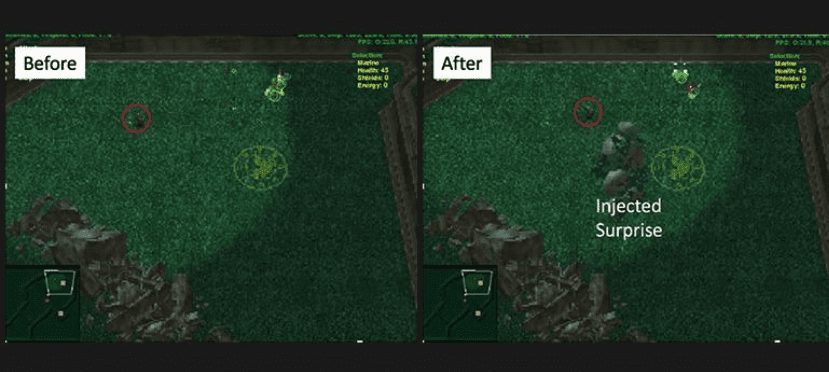Artificial intelligence (AI) systems are driving technology advancements in many commercial and government applications such as speech recognition and autonomous robotics. However, current systems are not able to handle new scenarios that they are not trained on. AI systems today can repeatedly make the same mistakes. Even with retraining, today’s systems are prone to “catastrophic forgetting” when a new item disrupts previously learned knowledge.
To address these limitations, SRI is developing a next-generation AI system able to learn continuously and apply that learning to become better and more reliable at performing new tasks. The work is being done under the Defense Advanced Research Projects Agency’s (DARPA) Lifelong Learning Machines (L2M) Program.
SRI researchers are training AI agents using real-time strategy games such as StarCraft_2. Using deep reinforcement learning methods, AI agents are trained with surprises injected into the game (e.g. terrain and unit capability change). Using this method, key metrics for lifelong learning metrics such as adaptation, robustness, and safety can be measured.
Because memory is a key element of cognitive function, SRI’s research is focused on understanding biological memory transfer, which is a complex sequence of dynamic processes, with local and global synchronization patterns. To this end, SRI researchers are developing a generative AI memory system for lifelong reinforcement learning that are agnostic to tasks and with the ability to separate concepts in AI latent space. These processes support future AI memories with flexibility in expression for future thinking, foresight, planning, and creativity.
As part of the L2M program, SRI researchers will develop AI algorithms and leverage understanding of biological mechanisms in memory consolidation and replay. With this AI technology, future cognitive systems such as autonomous robots may be able to continually learn after initial deployment, improving execution performance and overall safety.



